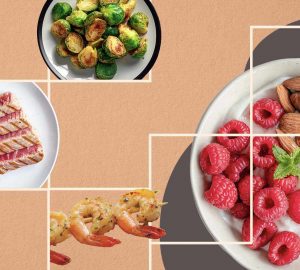Have you ever gone to the grocery store and asked yourself what foods you should buy and not buy? Did you later on regret or think back to see if it was the right decision? Well, you are not alone! Not only are adults unsure, but this lack of knowledge is transferred to the younger population in our society. In todays grocery stores and food markets, it is so easy to find frozen and processed foods that are high in salt, sugar, and fat content. These products are convenient, I will give you that, but eating them on a regular basis have become a societal problem and quite typical in many households. These are just some of the so called ‘silent killers’ which can really have a detrimental effect on overall health. Society must recognize this problem and admit that this has contributed to obesity rates especially in the youth. We can step back and say that it was not our fault but I believe we have to acknowledge this fact and take deliberate steps to make changes.
Diet and nutrition is an important part of a healthy balanced life but many youth do not know what is good and what is not. The Canada Food Guide is only touched on at school if at all. Supplying our body with the right fuel should be taught or be made aware of to children to help parents make the right grocery food choices to make an impact on health. This will translate to the general public. There are many ways to increase awareness, one of the most important ways would be to teach good habits at school in a carefully designed course. Promoting nutritional education at school will require knowledgable teachers and experts. This becomes the starting point for students to learn what vital information will give them enough “ammunition” to take back to their families to promote a healthier life. Getting the students involved with weekly goals and feedback will identify what areas will need more work for the future and what is working. Involving the youth in decision-making with regard to food choices will create a positive outcome. This kind of program can be built on the same model as drug abuse awareness for youth. The government introduced a program into the school curriculum dealing with alcohol and drug abuse. It was called the D.A.R.E. program which informed and notified early teens about drugs. This program had a lot of success and for the most part was a good eye opener. This model could also be used regarding food (and exercise) choices to have a positive outcome as well. There seems to a similar pattern: alcohol and drug abuse is something frowned upon in society because of the disastrous affect it can have to one’s life. Obesity is no different and can also lead to similar dependency issues. In this case it would be dependency on sugary or salty prepared foods. We can live without drugs, but not food. The program I am touching on could easily be introduced into the curriculum to assist families to promote healthy food choices and curb some bad habits. Society has nothing to lose and everything to gain because it can not sustain a population with an increased chance of type 2 diabetes, coronary heart disease, hypertension and possibly many other health problems. It must be tackled head on.
Not only will the school environment be helpful for imparting this information for the future, but this helps the environment at home. It is often said that “you will eat good food, if your fridge contains good food.” Resisting the temptation of buying unhealthy processed/frozen foods and treating your body with the proper nourishment will never come back to haunt you. Treating yourself once or having a cheat meal once in awhile has never been ruled out but it must be conscientiously decided. From my own experience, if someone has 6 cheat days a week, limit that number so it is only 5 cheat days, then 4, etc. Eventually your body will feel and look a lot stronger, sharper, and healthier. To add to this, instead of a cheat day, only have a cheat meal. Making small adjustments instead of cutting out every single bad food in your weekly diet will help you get closer to your goal. The goal here is to not turn you off from any future success and keep you motivated.
To summarize, globally society needs to make some tough decisions about their health by changing how much, and what foods should be eaten for a healthier life. Educating the young will be important for future generations to break free of this unhealthy dark hole that we have all been sucked into. We may not have control over others in the world and what goods will be made, but we definitely have control over our decisions as to what foods we bring into our households and consume on a daily basis. The choice is yours to make but just remember, “what you eat in private, you will show in public.”
By : Zachary Lun – NAIT PFT Student
References
Perez-Rodrigo, C., & Aranceta, a. (2001). Lessons learned and new perspectives [Electronic version]. School-based nutrition education, 4(1A), 131-139.








